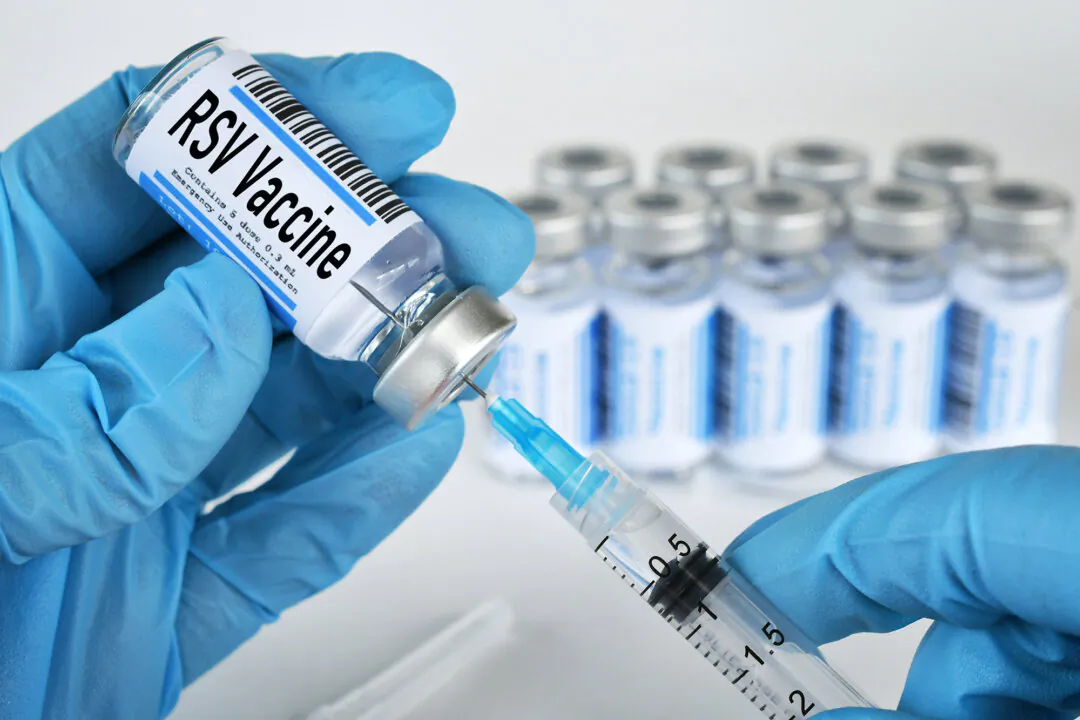In the agency’s updated vaccine recommendation, the U.S. Centers for Disease Control and Prevention (CDC) suggests that children under the age of 19 months be vaccinated against the respiratory syncytial virus (RSV) and that some young adults be vaccinated against monkeypox (mpox).
The recommendations come as the highly contagious RSV spreads throughout the nation. According to the CDC, between 60,000 and 120,000 Americans are hospitalized every year with RSV, while between 6,000 and 10,000 adults 65 years and older die from it. The seasonal virus affects the lungs and causes pneumonia and bronchiolitis, in which the small air passages swell.
The CDC’s new vaccine schedule recommends that infants receive their first RSV vaccine before the age of 6 months unless the child’s mother received the vaccine at least 14 days prior to delivery. Another dose, or the first for infants whose mothers received the vaccine while pregnant, should be given to infants at high risk of contracting the virus between the ages of 8 and 19 months.
An RSV vaccine, Arexvy, was approved by the U.S. Food and Drug Administration (FDA) in May 2023. It is the first RSV vaccine approved in the United States to prevent the lower respiratory tract disease caused by RSV for people under age 60. In July, the FDA approved nirsevimab, a monoclonal antibody for infants and some young children. In August, the first RSV vaccine was cleared for pregnant women, too, followed by a recommendation by the CDC that vulnerable young children and pregnant women between 32 and 36 weeks gestation receive the vaccine. That recommendation also went into effect for adults over 60.
The new recommendations come just two months after the CDC issued a health advisory due to limited supplies of the new RSV vaccine. The advisory recommended that physicians focus on giving the vaccine to the most vulnerable populations, including children, as RSV continues to be the leading cause of hospitalization among U.S. infants.
Mpox Vaccine Recommendations for Young Adults
Mpox continues to ravage the Democratic Republic of Congo and threatens to turn into a global epidemic. Officials hope the new vaccine schedule recommendation will help fight the spread among vulnerable populations. The recommendation includes a two-dose series spaced 28 days apart for individuals who are gay, bisexual, transgender, or nonbinary who, in the past six months, have met the following criteria:
- Been diagnosed with at least one sexually transmitted disease.
- Had more than one sex partner.
- Had sex at a commercial sex venue.
- Had sex in a large public space in an area where mpox transmission is occurring.
The vaccine is not recommended for people under 18 years old.
There is not enough information on the vaccine to determine if it is safe for pregnant or breastfeeding women, according to the CDC’s National Center for Emerging and Zoonotic Infectious Disease (NCEZID). However, NCEZID researchers claim there has been no evidence of harm to developing fetuses in animal models. Therefore, the agency suggests pregnant or breastfeeding women at risk for mpox may receive the vaccine before exposure.
Mpox typically spreads through direct, skin-to-skin, or intimate contact. Examples include contact with mpox rash or scabs or contact with the saliva or mucus from an infected person. Additionally, the virus can spread through oral, anal, or vaginal sex, hugging, massage, kissing, or prolonged face-to-face contact. Individuals who engage in risky sexual behavior are more likely to develop mpox.
Mpox symptoms typically start within three weeks after exposure. An individual with mpox will often develop flu-like symptoms before developing a rash within one to four days. Other symptoms include fever, chills, swollen lymph nodes, exhaustion, muscle aches and backache, headache, and respiratory symptoms.



